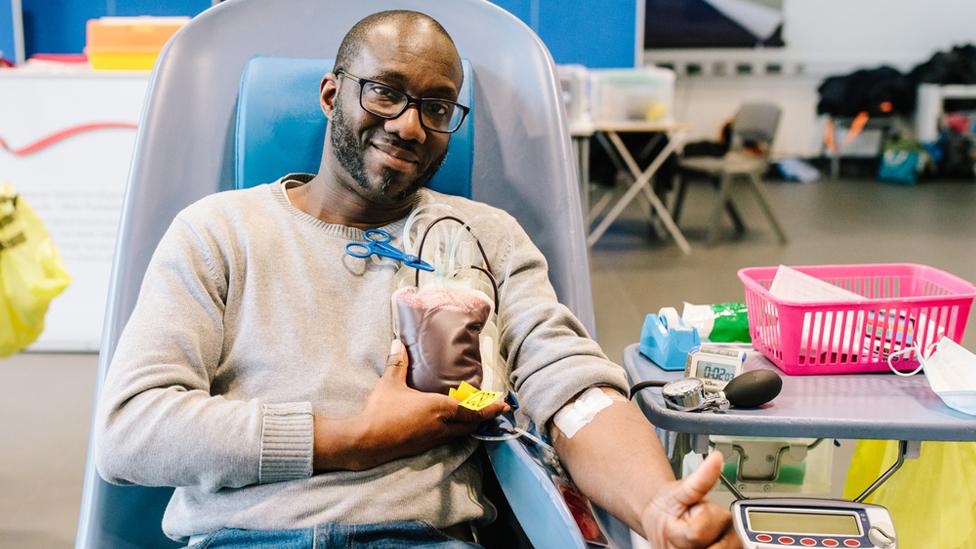Sickle cell: NHS launches black blood donor campaign
- Published
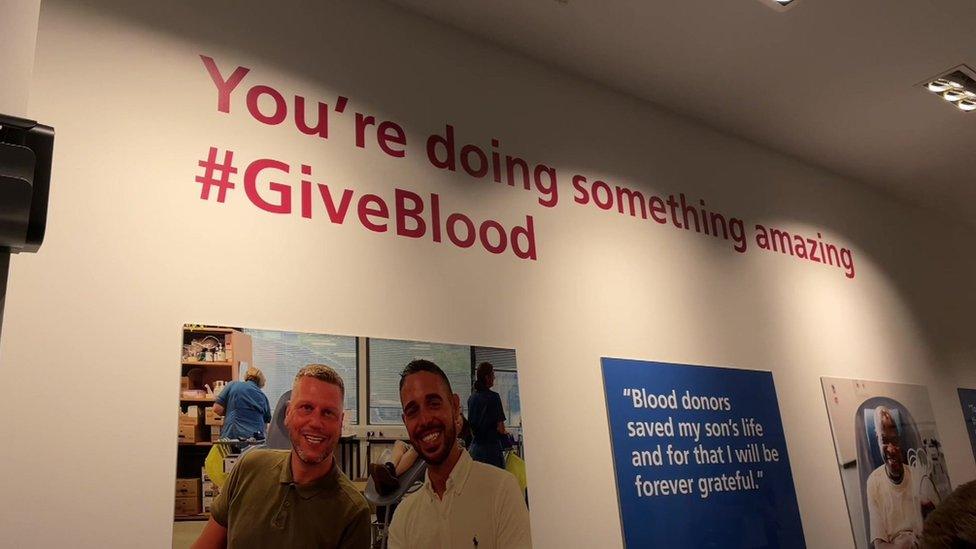
The NHS says sickle cell anaemia disproportionately affects people from black communities
A campaign has been launched to raise awareness of the urgent need for more black blood donors.
It comes as the number of sickle cell anaemia sufferers from the black community has risen.
It is estimated that 250 donations are needed every day to treat the condition, up from 150 donations five years ago.
The NHS says that ethnically matched blood provides the best treatment.
The disease causes red blood cells to distort and become sticky, blocking vessels and restricting oxygen supply, which triggers excruciating pain. Many patients need regular blood transfusions to stay alive.
Mark Croucher, assistant director of Donor Experience Services at NHS Blood, told the BBC: "We are urgently calling for more black donors to donate blood that will help sickle cell patients.
"Sickle cell is the fastest-growing blood disorder in the UK and it is more likely to impact black people."
'Civic duty'
Prominent members of the black community have been donating blood at a new NHS donor centre in Stratford.
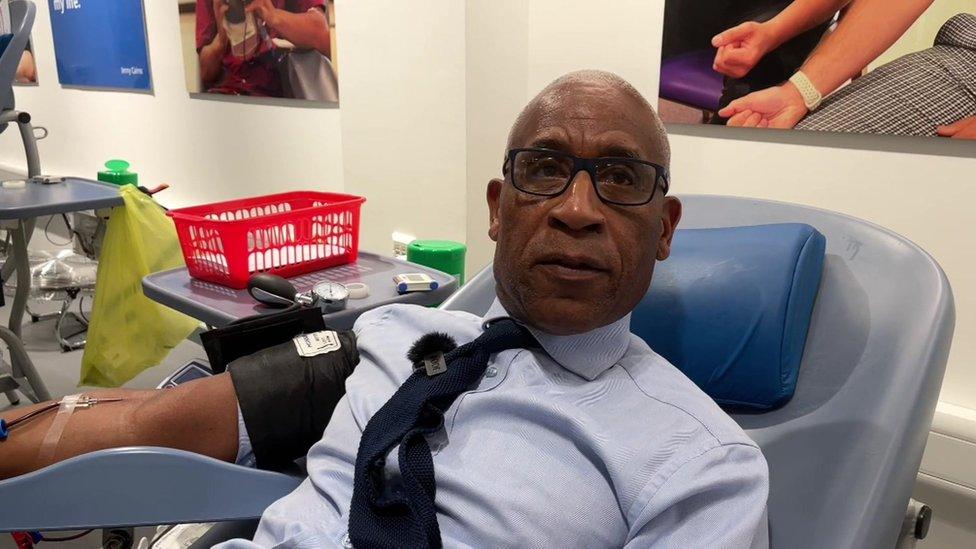
Simon Woolley says this is his first time donating blood, but "certainly won't be the last"
Lord Woolley, principal of Homerton College, Cambridge, says he believes it is his civic duty to donate blood.
"It is a great act of citizenship to give blood to people who look like you and need your blood.
"One session could potentially save three people's lives so I hope by doing this I can encourage other people to give blood."
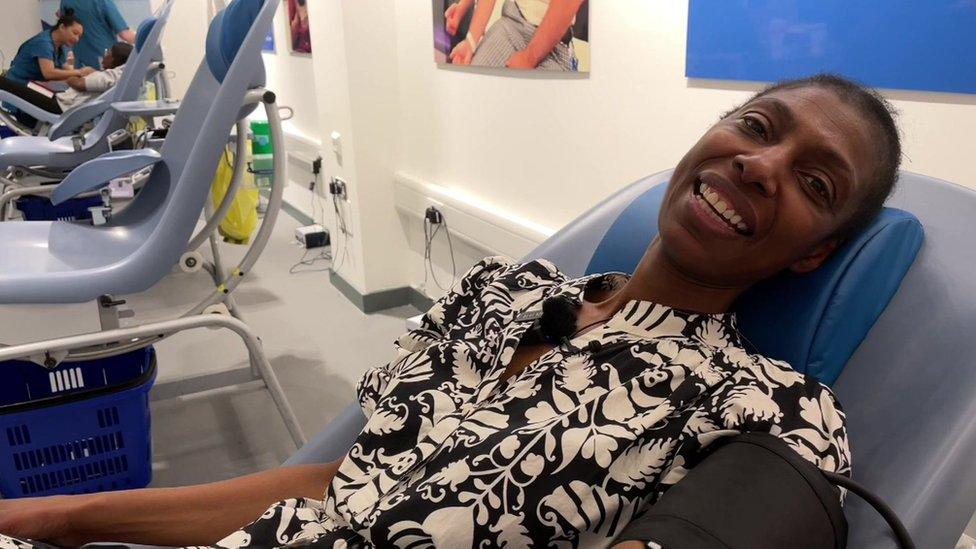
The campaign hopes to encourage people of colour to regularly donate blood
Dame Sharon White, chair of the John Lewis Partnership, echoed Lord Woolley and said: "It's a really easy and quick thing to do and it can have such an impact on people who need blood regularly."
She added: "People aren't coming forward because they don't know how to or they don't see people that look like them stepping forward."
'Seamless process'
Dubo Graham-Douglas told the BBC she decided to give blood for the first time after a conversation with a friend who has sickle cell anaemia.
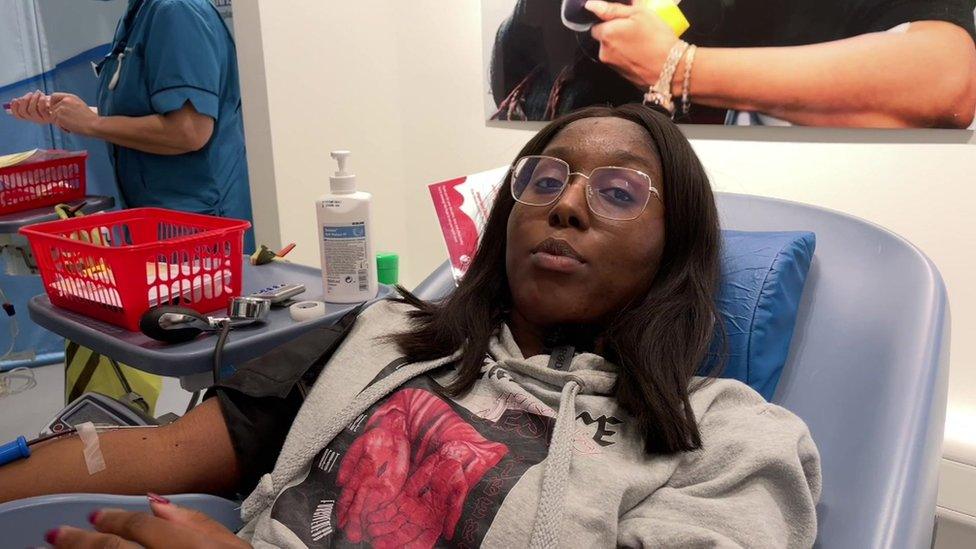
Dubo Graham-Douglas: "We need more conversations about donating blood"
"My friend made me realise how important it is for people of colour to give blood," she said.
"We need more conversations about donating blood as many people don't know how they can donate or how seamless the whole process is."
Although black people with sickle cell can receive blood from white donors, the NHS say ethnically matched blood is better. Over 55% of black people in the UK have the Ro subtype needed to treat the condition, compared to 2% of the general population.

Follow BBC London on Facebook, external, Twitter , externaland Instagram, external. Send your story ideas to hellobbclondon@bbc.co.uk, external
Related topics
- Published7 February 2023
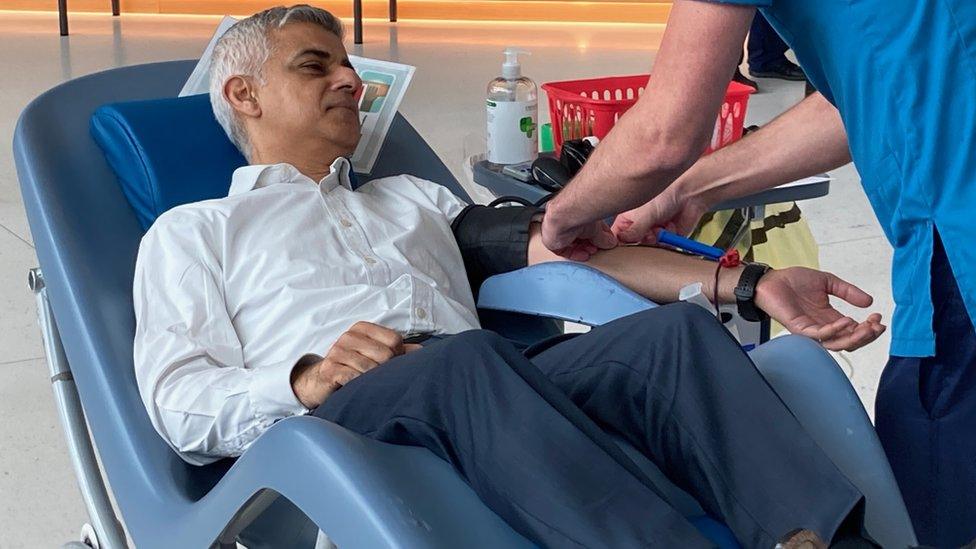
- Published6 October 2022
